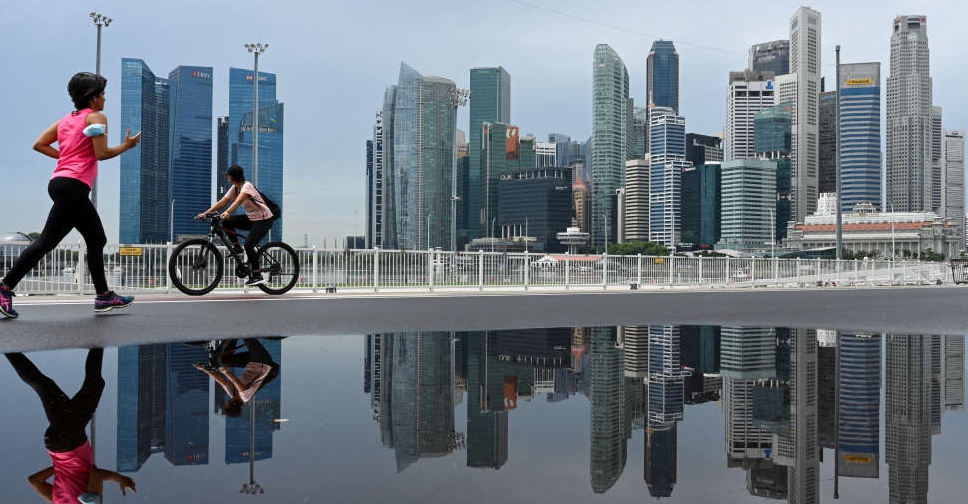
Singapore will expand quarantine-free travel to Hong Kong, Qatar, Saudi Arabia and the UAE this month, its health ministry said, resuming border reopening after a pause due to an outbreak of COVID.
The city-state will also restore and increase quotas under its vaccinated travel programme, which had been reduced in December to deal with the Omicron variant.
Singapore will streamline border measures for all travellers, and remove an entry approval requirement for eligible residents who are long-term pass holders, the ministry said, making it easier for expatriates to travel.
However, some overseas workers with different permits typically employed in sectors such as construction and manufacturing will still need an entry approval.
The country intends to eventually scrap vaccinated travel lanes for visitors from designated countries to allow entry to all vaccinated visitors without quarantine, authorities said.
About two dozen countries are in the vaccinated travel lane programme including Australia, India, Malaysia, Britain and the United States. The new lane with Hong Kong is unilateral.
Singapore reported a record 19,179 local coronavirus infections on Tuesday, but a majority of the cases had mild or no symptoms. The government said the caseload was within expectations and that the overall situation in the healthcare system remained stable.
Singapore could see 15,000 to 20,000 COVID-19 daily cases until the current Omicron wave falls in a few weeks, Gan Kim Yong, minister of trade and industry, said in a briefing.
The government announced a raft of changes to local COVID-19 measures, including easing rules for close contacts of confirmed cases, removing routine testing for workers in several sectors and allowing more interactions at residences and workplaces.
Singapore will ease social and travel restrictions when the Omicron wave subsides, Health Minister Ong Ye Kung said, adding that the new local rules on testing and isolation placed more weight on personal responsibility rather than legal requirements.

 Iranian President Raisi killed in helicopter accident, state media says
Iranian President Raisi killed in helicopter accident, state media says
 ICC prosecutor seeks arrest warrants for Israeli, Hamas leaders
ICC prosecutor seeks arrest warrants for Israeli, Hamas leaders
 Assange given permission to appeal against US extradition
Assange given permission to appeal against US extradition
 Israel intends to broaden Rafah sweep, Defence Minister tells US
Israel intends to broaden Rafah sweep, Defence Minister tells US
 New Taiwanese president calls on China to stop threats
New Taiwanese president calls on China to stop threats




